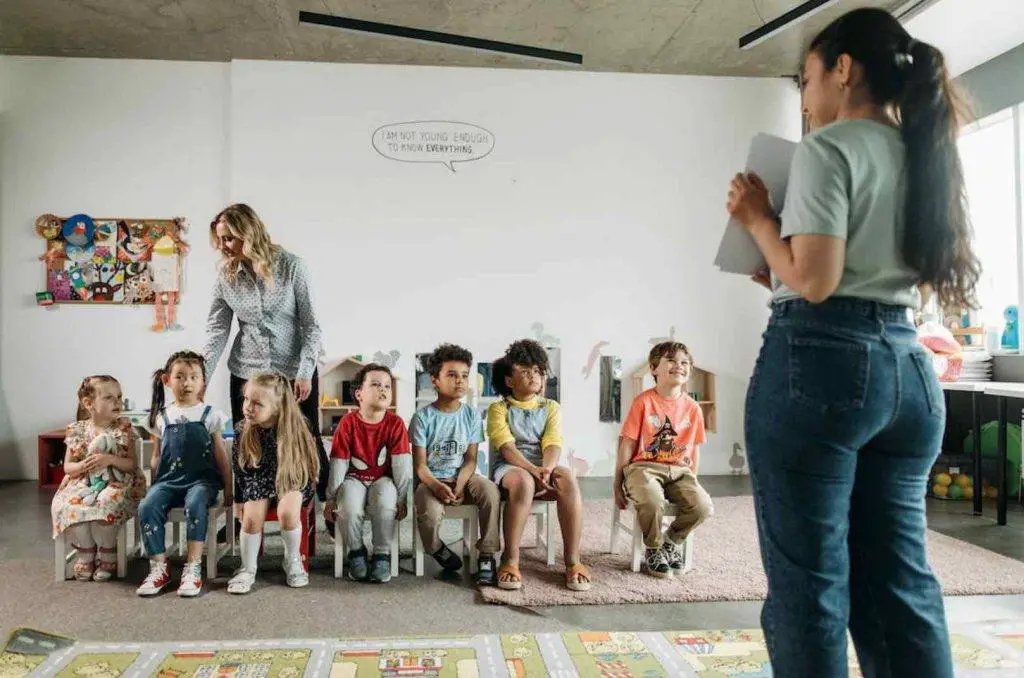
Philosophy is a broad subject. It is also one of the ancient disciplines with roots traceable back to the sixth century B.C.E. The field of study improves a student’s ability to think carefully and logically about various topics. It also helps the development of the ability to assess and assimilate new information.
Now more than ever, kids need to learn reasoning and argumentative skills. Since they are in a formative stage of life, their brain develops faster, and they learn more quickly. Studying philosophy helps them explore puzzling concepts. It also aids the discovery of what it means to be valued in the world. But when lecturing kids in school, one must exercise caution. Children are delicate and emotionally fragile. Let us suggest ways to teach kids in school for easy comprehension.
The Methods of Teaching Philosophy to Children
Education promotes knowledge and skill development. With this, students of different ages can flourish in current and future spheres of life. But this ultimately relies on the training methods.
Unlike adults, kids cannot relate to most life problems. College professors ask students to write a philosophy paper to gain more exposure to the topic. Like most assignments, it is time-consuming. In addition, not all students can fully cope with this science, so they need help. Students that don’t have enough skill or time to draft an essay pay a philosophy paper writer and focus on other crucial tasks. But as for kids, instructors must connect at their level without overpowering their emotions.
Philosophy for Children (P4C) is a proven method for helping children develop critical, creative, caring, and collaborative abilities. It is currently in 60 countries and is part of teachers’ training sessions. The method emphasizes using inquiry methods or lessons instead of using authoritative sources of information. Follow these steps to teach children philosophy.
Use Narratives and Stories
Kids respond best to stories. As a result, incorporate topics like morality, friendship, or truth into intriguing stories. Ask kids philosophical questions and let them read aloud as well. Profound questions and storybooks promote creativity and imagination. Most instructors use stories with animals as the main characters. Some topics include friendship and family, poverty and wealth, etc.

Use Pictures
Ask questions alongside an inspiring picture. Images of animals, people, or natural landscapes are easy to comprehend. Not only this, but it creates an opening for discussions since they are relatable.
Benefits of Teaching Philosophy to Children
Kids are natural philosophers. They have the most wonderful curiosity, but it is not always encouraged. If you ask any expert with a philosophy degree, many believe that structured coaching at a young age will help kids resolve philosophical issues they encounter as children. For example:
- Are ghosts real or not?
- What makes someone my best friend?
- Where do babies come from?
- Why should I tell the truth?
A philosophical inquiry forces kids to think and reflect on their thoughts constantly. It also makes their experiences more meaningful, and they explore ordinary but puzzling concepts. Below are a few advantages of learning philosophy:
It Teaches Critical Thinking
Philosophy produces critical, creative, and collaborative thinkers. Teaching children a philosophical foundation is critical for developing thinking skills from a young age. By definition, this type of creative thinking facilitates judgment as it relies on defined criteria. It is also self-correcting and sensitive to context. Apart from this, the subject encourages creativity and care. More than knowing the right thing to do, they know how to achieve it while being sensitive to others involved and the context.

It Guides Their Relationships
One of the goals of philosophy is to help children make judgments. It also teaches how to be comfortable with the opinions of others. By studying it, they learn to like others and make friends despite having different opinions. All they need to do is get to know each other differently. Even when they disagree in the playground, they can respect others’ points of view.
It Helps Value Development
Schools have different frameworks that identify their values. They include compassion and care, responsibility, etc. Most of these skills children learn have roots in philosophy. Since the subject compels them to argue, think, and reason, they don’t have to follow dogmas. Beyond academic results, they develop a sense of humane values and ethics. Kids become better communicators, learn social skills, and improve their value.
It Helps Their Studies
Philosophy positively influences a pupil’s confidence, self-esteem, and listening abilities. It also improves their English and Math skills. According to a pilot study highlighting the importance of possessing an inquiring mind, children benefit from philosophical debates about truth, knowledge, and fairness. It enhances their problem-solving capabilities and helps them analyze arguments, problems, and definitions. It also contributes to their capacity to organize ideas and extract essential information.
It Teaches Basic Abilities
Studying philosophy enhances a child’s problem-solving abilities. It also teaches communication, writing, and persuasive powers. They learn to express their distinctive view and eliminate ambiguities from their speech or writing. Not only this, but they write original content, develop ideas from imagination, and use examples to describe positions. When they need to argue, they build and defend their opinion and appreciate competing positions.
Conclusion
Teaching children philosophy foundation in schools is one of the ways to promote values education. Most children grow up with ethical concerns and issues they are unaware of. Access to media and the internet also increases their exposure. But by acquiring knowledge, teachers can make their experiences more beautiful and valuable. The concept helps them explore ordinary but puzzling concepts to make more sense of the world through self-discovery. Instead of conforming to prescribed values, it provides an opportunity to seek and strengthen their capacity for appraisal. They can also self-correct through sustained ethical inquiries.









